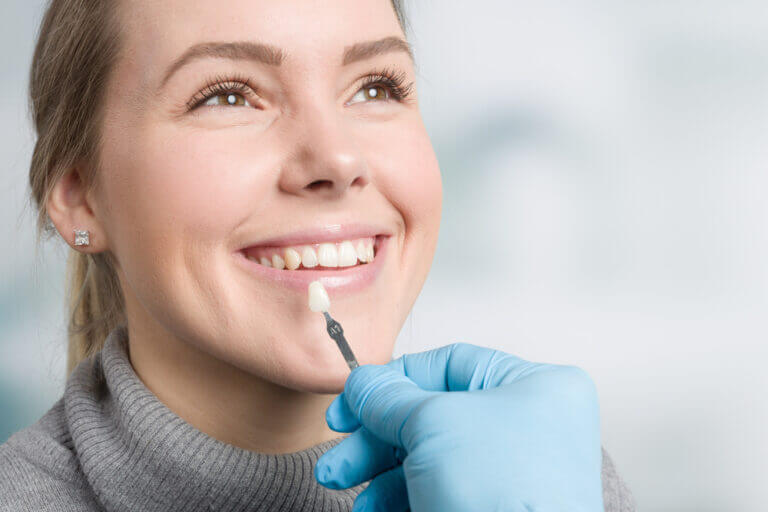Xerostomia, or “dry mouth,” is a condition in which the glands in your mouth do not create adequate saliva to keep your mouth healthy. Read on to learn about how saliva plays an essential role in your body’s health and function and how xerostomia can negatively effect your oral health.
Symptoms of Xerostomia
Xerostomia can be very uncomfortable and is easy to feel. Apart from experiencing a dry mouth you may also experience the following:
- Dry tongue
- Cracking at the corners of your mouth and lips
- Dryness in your nasal passages
- Sore throat
- Mouth sores
A simple way to reverse the effects of xerostomia is by staying hydrated throughout the day. Drink plenty of water and eat plenty of hydrating foods like fruits and vegetables. Staying hydrated will allow your body to turn water into saliva through the salivary glands. If you are struggling with keeping your mouth moist, talk to your doctor about additional aids you can use including rinses, sprays, and chewable tablets.
Causes of Dry Mouth
There are many causes of dry mouth. Xerostomia can easily by diagnosed, but finding the underlying issue is a bit of a riddle. If you think you may have xerostomia, one of the following could be the cause:
- Dehydration. You may also have a medical condition that leads to dehydration, such as vomiting, diarrhea, fever, or excessive sweating.
- Breathing with your mouth open can dry out your mouth. You can also wake up with bad breath and xerostomia if open-mouth breathe in your sleep.
- Drinking alcohol, smoking cigarettes, or chewing tobacco.
- Relaxants, sedatives, and other medications can cause dry mouth as a side effect.
- Cancer patients receiving chemotherapy can have xerostomia as a side effect.
- Injury or surgery resulting in nerve damage to the head or neck area.
- Certain diseases and infections. Examples include HIV/AIDS, Alzheimer’s disease, Parkinson’s disease, diabetes, or anemia.
- Many elderly people experience dry mouth as they age. The cause can be a lack of proper nutrition, other health conditions, certain medications, or a combination of the above.
How Saliva Keeps Teeth Healthy
Saliva is a clear liquid your body naturally produces. It is 98% water, but also contains electrolytes, mucus, enzymes, proteins, and antimicrobial compounds. To keep your mouth and the rest of your body healthy and functional, it does the following:
- Saliva fights infection by regulating the bacteria and fungi in your mouth. One such example is thrush, which is a fungal infection of the mouth.
- Saliva moves around in the mouth and sweeps away food debris leftover from eating. This movement helps fight the bacteria that cause tooth decay.
- Saliva repairs the enamel in your teeth through the minerals found in the clear liquid, such as calcium, fluoride, and phosphorus.
- Saliva aids the digestive process. By making the food you chew softer and wetter, it becomes easier to swallow. Saliva also contains an enzyme called amylase, which is beneficial for breaking down starch, maltose, and dextrose in foods.
How can dry mouth hurt my teeth?
When it comes to bacteria, infection, and fungi in the mouth, saliva plays a defensive role. Without adequate saliva production, your dental health and oral wellness can be directly affected. Common complications of dry mouth include:
- Staining and discoloration of teeth. The longer that food and drink remain on the surface of teeth, the more likely you are to experience teeth staining. This can be further exacerbated if your tooth enamel is eroded.
- Erosion of tooth enamel. While you may already know that the minerals in saliva help repair tooth enamel, you may not know that they can also wash away harmful acids. When left on the surface of teeth due to dry mouth, acids can slowly weaken the protective enamel of your teeth.
- Tooth decay. When there is not enough saliva production to sweep away plaque, leftover food particles, and acids from the surface of your teeth, bacterial growth would cause you to be more vulnerable to cavities.
- Periodontal disease (gum disease). Plaque and tartar buildup can result in bacterial infection and inflammation of gum tissue. Gum disease would also increase your risk of tooth decay. When untreated, tooth decay and gum disease can reach the roots and supporting structure of teeth. This would potentially result in tooth loss.
Doctors Fedorciw, Massoumi & Kolbig have over 30 years of combined dental experience. With their great team and dedication to compassionate and modern dentistry, they ensure that each patient has a great experience. Whether you are in need of family & restorative dental procedures like fillings & cleanings or if you are interested in enhancing your smile with cosmetic dentistry, our office is ready to help. Call and schedule your appointment today!




